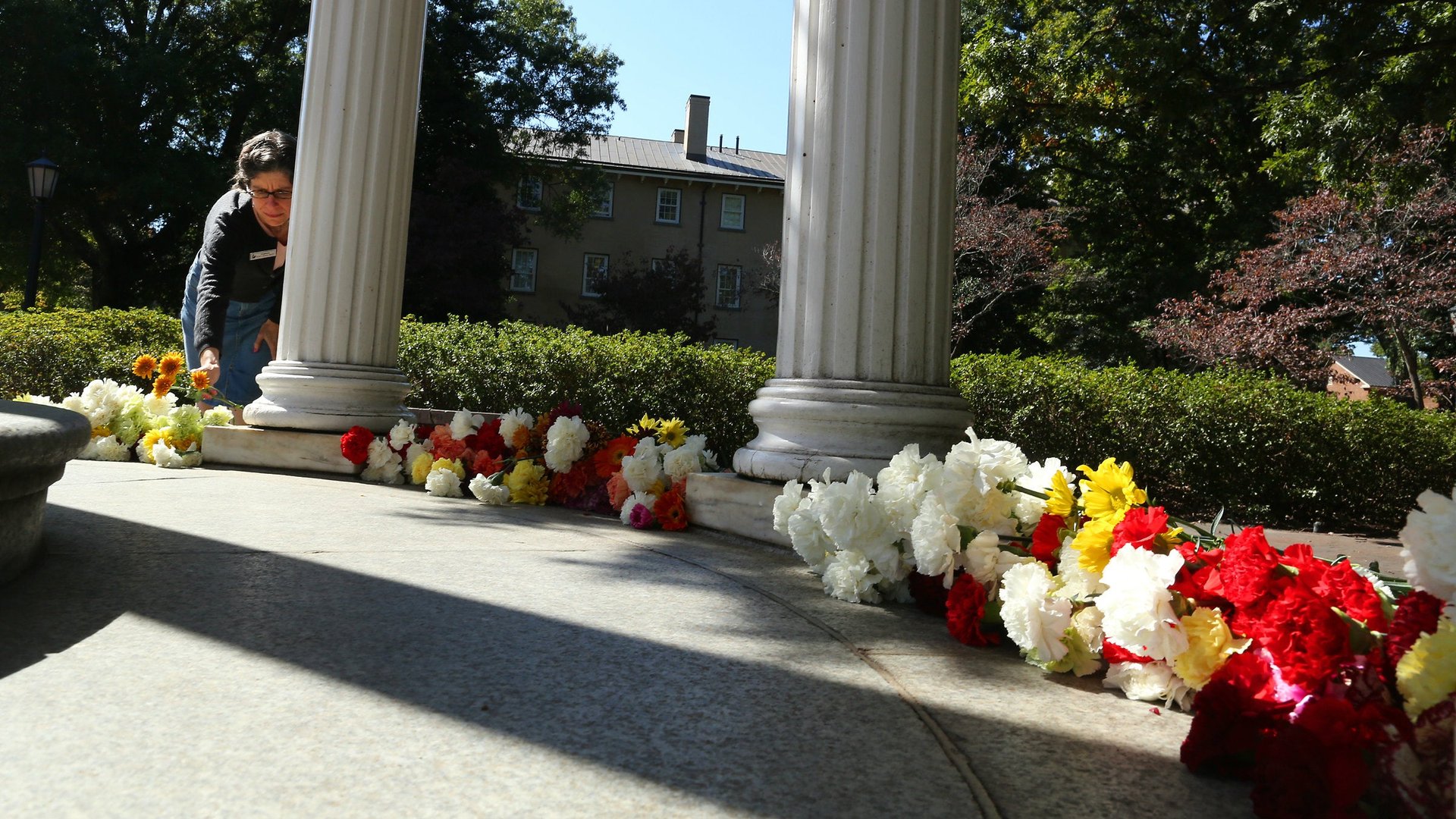Dealing with death ties us tighter at UNC
Death haunts the University of North Carolina community, just like it does any family.


Death haunts the University of North Carolina community, just like it does any family.
This week it claimed Deah Barakat, one of our dentistry students, as well as his wife, Yusor Abu-Salha, and her sister, Razan, respectively a Tar Heel-to-be and a student at North Carolina State. They were gunned down coldly in an off-campus apartment, and their loss will shape what we know of Carolina.
The Raleigh News & Observer reported that prosecutors initially said Craig Hicks killed the trio over a parking space, though that’s stopping neither the women’s father nor a global chorus of Muslim and other voices from calling the act an anti-Muslim hate crime. But they’re not just faces on the news; they’re distant cousins, stolen by cowardice and replaced with a sore emptiness.
Before this tragedy, we mourned Dean Smith and Stuart Scott. The former was our renowned, beloved, men’s basketball coach, who racially integrated our team and town before succumbing to dementia. The latter was a broadcaster felled by cancer, a big-timer on ESPN who left us with ”Booyah.”
Those deaths were hard, too, but they came slowly and were almost warm occasions to reflect on the gifts these men gave us. Older alums and Uncles and big sisters had a chance to pass down, through their tears, their sense of UNCs legacy. The dorms looked like this when I watched Stu on SportsCenter. This Franklin Street bar is important because I hopped onto that table right there when Coach Smith cut the nets in ’93.
Other deaths have been crueler, and they came with a suddenness that hurt us far more specifically. Two men robbed and murdered Eve Carson, our student body president, in 2008. She, too, made headlines, but that was more than a year before I even set foot on campus and months before I even knew what campus looked like. I didn’t know who she was or what she symbolized.
But her memory lingered there, and now there’s a scholarship and a 5K and a monument that will keep it present longer still. We wove her spirit into everything good we associate with our school, and the more I learned about her the crueler her absence became.
The death that became a direct part of my Tar Heel identity was Faith Hedgepeth’s, who was beaten to death in her apartment after a night out. I saw her friends’ tears and I attended the vigil and I heard them beg for a resolution to her still-unsolved murder case. Faith was a person, in the same place as I was, who knew Carolina as I knew it, and she was relegated to being a memory we shared, instead of sharing memories with us.
Baraket’s death far more than a symbol for Craig Hicks’ cowardice, for Islamophobia, for arguments about gun safety. Even in a collective as transient and disparate as our churning assembly of 40,000 students, faculty, and staff, death drives deep into our hearts the connection we share, marks time, marks place, and molds the meaning we derive from it all.